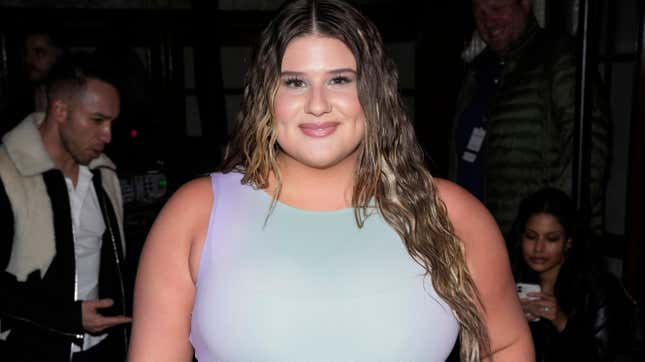Remi Bader Says Conflicting Expectations Around ‘Body Positivity’ Affected Her Eating Disorder
“I’m supposed to be promoting self-love, but I’m just not going to pretend I love my body all the time," Bader wrote for The Cut.
Health

In a new essay for The Cut, TikToker and model Remi Bader shared that the unwanted “body positivity” label she’s received worsened her struggles with disordered eating last year. The issue first arose as she faced backlash and ostracism from “certain people in the plus-size community” and body positivity influencers who took issue with how Bader would “openly talk about being unhappy with my body.” She explained, “When I say ‘I’m not the happiest right now,’ or ‘I don’t feel great,’ people will say: ‘Remi’s fatphobic.’”
The stress of constantly facing this criticism, all while holding her own complicated, deeply personal feelings about her body, ultimately reignited Bader’s struggles with binge-eating. “About a year into all of this I finally realized that I was getting into a darker place, that my binge-eating was starting to get worse. That I needed help. I was like, ‘I want to take a break from social media, but I can’t. I need to post every day,’” she wrote.
-

-

-

-

-

-

-

-

-

-

-

-

-

-

-

-

-

-

-

-

-

-

-

-

-

-

-

-

-

-

-

-

-

-

-

-

-

-

-

-








































